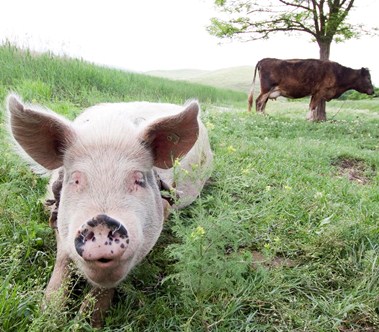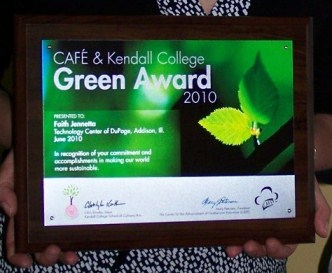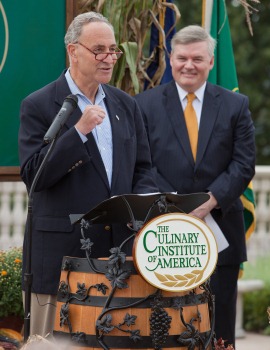Green Tomato: a Ham with a Lower Carbon Footprint
Sunday, 04 March 2012 11:39
 The Pork Checkoff honors 2011 Pork Industry Environmental Stewards
The Pork Checkoff honors 2011 Pork Industry Environmental Stewards
The National Pork Board honored four farm families as recipients of the 2011 Pork Industry Environmental Stewards Award at the annual National Pork Industry Forum recently held in Denver. The award, now in its 18th year, recognizes producers who demonstrate a firm commitment to safeguarding the environment and their local communities.
The 2011 award recipients are:
Golden Circle Pork, Woodward, Iowa
Rod and Missy Bice produce 6,600 wean-to-finish pigs annually on their farm set amid 1,400 acres of corn and soybeans. They and their children continue the farming tradition that began more than a century ago by both sides of the family. The Bices were also named Environmental Stewards for Iowa in 2010.




 Sharing your best ideas for innovation in teaching sustainability can be rewarding.
Sharing your best ideas for innovation in teaching sustainability can be rewarding. The truth about GMOs.
The truth about GMOs. Senator Schumer launches a push to secure new funding to help The Culinary Institute of America and Hudson Valley farmers get products on local shelves and into local restaurants.
Senator Schumer launches a push to secure new funding to help The Culinary Institute of America and Hudson Valley farmers get products on local shelves and into local restaurants.